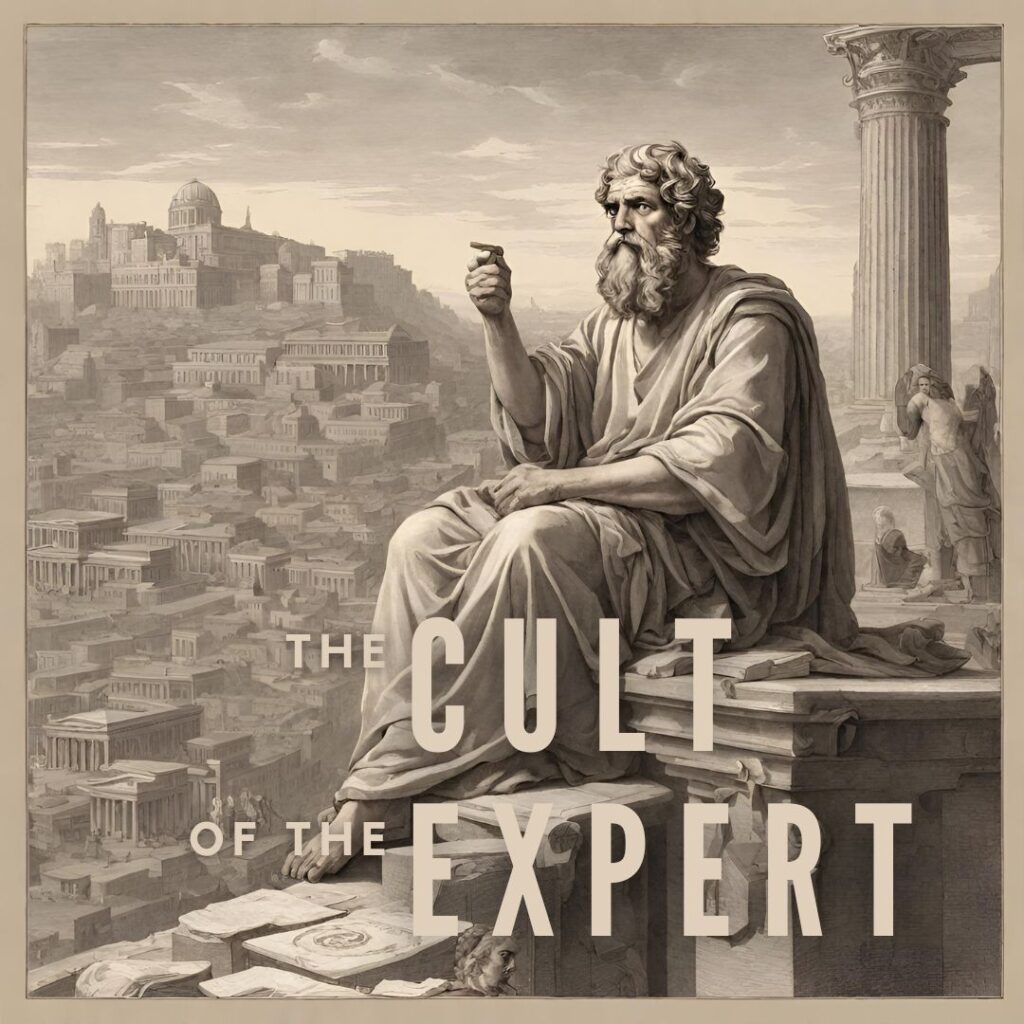
Penned in 375 BC, Plato’s Republic argues for the ideal state. This state would be one of bliss and prosperity. His idea? A ruling class of philosophers serving as Guardians to order life in the city. The ruling elite or philosopher king would rely on a lifetime of special education which will enable him to “be the savior of his country, as well as himself” (Republic, 6.497).
Ideas have a way of reappearing again and again in history—including bad ideas. As the Preacher said, “There is nothing new under the sun” (Ecclesiastes 1:9). We see the same spirit of Plato’s vision in Western culture today. Increasingly we are seeing “experts” who pontificate on civic and familial matters to direct a city or nation into truth and prosperity. Whether the issue is climate change, healthcare, domestic or foreign policy, there are scientists, experts and specialists that provide the answers and solutions to save the rest of us. We hear phrases like, “Scientists agree…” or “The science says…” and what follows is taken to be as authoritative as divine revelation. It’s the cult of the expert. Who are we to disagree with science? Who are we to disagree with the specialist?
There are several problems with this cult of the expert in our society today. One is the absence and denigration of the generalist. Increasingly education is highly focused in one field of study to the neglect of other areas of life. With this specialization typically comes an emphasis on training for a specific job or role rather than cultivating a mind to think. In the past few years we’ve seen medical experts grab the political steering wheel to avoid a viral contagion only to drive us over the cliff into economic ruin and social chaos. These experts focused on physical health but acted without considering emotional, spiritual, relational, or economic health—just to name a few. Dissenting opinions were ignored and those with knowledge in other fields were silenced. Phrases like “You’re not an epidemiologist,” shut down the conversation and kept the car in gear and the gas pedal down as we continued veering off course.
The second major problem is that our ruling elites rule as if there is no God. As God said through Hosea, “My people are destroyed for lack of knowledge” (Hosea 4:6). And what knowledge did they lack? There was “no knowledge of God in the land” (Hosea 4:1). This resulted in “swearing, lying, murder, stealing, and committing adultery; they break all bounds, and bloodshed follows bloodshed” (Hosea 4:2). No matter how educated the ruling class is, if there is no knowledge of God the nation will languish and groan. God’s word is not consulted nor is there subjection to his Christ. The experts are blindly leading unless and until they pay homage to the King and take heed according to his word.
What can Christians do? I suggest two solutions:
First, rather than constant deferral to experts, it is time we grew to value the generalist and those who have a wide range of knowledge which spans multiple disciplines. Not only that, but as Christian parents we should want our children to be able to think critically in a multi-disciplinary fashion rather than just train them for a task or role. Better than counting how many experts agree—and sorting through the funny business that happens in these counts—we need to encourage thinking that can analyze the big picture. Let us create a culture of thinking that incorporates studies in history, science, philosophy, theology, and the arts. A thinking mind is a beautiful reflection of the image of God in man. There is a good intellectualism that submits itself to God and his truth, goodness, and beauty.
Second, and most importantly, it is incumbent upon Christians to take up the mantle of being biblically wise so that we are able to live and give instruction. The Scriptures are a treasury of knowledge, and the fear of the Lord is the beginning of wisdom (Proverbs 9:10). Let us never forget this. It is the knowledge of God that provides the foundation for wisdom in all facets of life—including healthcare, business, and foreign policy. He is the source of all truth. As we seek to know God through his word and seek to apply that knowledge to all areas of life, we are best suited to think with clarity, insight, and skill. One day we will rule with Christ (Revelation 5:10), judge the world and even judge angels (1 Corinthians 6:2–3). So let us commit to learn of God from his word and live in his world with wisdom.
While the world seeks to mimic Plato’s Republic with philosopher kings, let us live considering God’s kingdom with Christ our King, who is the King of all kings. Let us, through our actions and thinking, shine the light of Christ through our lives, families, education and vocations.
Tim Stephens
